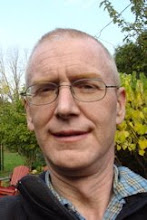So the questions that rage through my mind when writing on a blog have to do with appropriateness as suggested by the team of psychiatric rehabilitation actors I have used. Also privacy and things like libel effect my writing. But as I read about social navigation I am becoming aware that appropriateness is socially defined by people and is appropriate in places where people go and do things. So necessary for the definition of appropriateness are people just as laws are created by people and set out appropriate behaviours.
I am also combining my reading of social navigation with reading Cooper. I started reading this new field last week. I suspect the recent social networking web site engineers have studied this field.
- The bibliographic cite for this reading is
- Dourish, Paul. Where the Footprints Lead: Tracking Down Other Roles for Social Navigation in Munro, Alan J. & Höök, Kristina. & Benyon, David. Eds. Social Navigation of Information Space (London, UK: Springer, 1999) at 15-34.
- This article starts by suggesting navigation to be possible as spatial navigation, semantic navigation and social navigation. The author explores social navigation, as more than book recommender web sites in fact examines ways that social navigation could use a wider possible group of social interactions. He briefly touches on architecture and distinguishes between space and place. Spaces being physical and the root human understanding of the world and places being more socially defined and having meaning for people, He depends here on urban and architecture studies that are much older than computer software design. He also briefly looks at perceptual awareness of others as an example of a social interaction to be added to social networking of information space. That is information about the activities of others gained on the periphery. He sees social informatics as both a way to help others find information and at the same time a way to exploit for financial gain the information others have left in their use of the same information. He does mention that privacy is an issue with using information about people. He stubbles when discussing generalized information and presenting trends and aggregate data which I think needs more understanding from a paranoia of identity theft and also the natural hiding many do on the Internet. But all in all this was a good two-day read.
